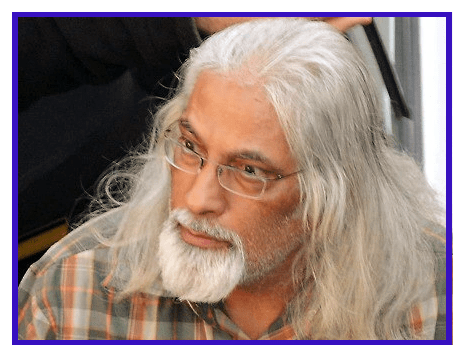Republishing a blog from the past. The more I think about it, the more convinced I am. Feel free to agree or disagree. That’s why I blog.
No disrespect intended to followers of any religion that has a messiah at its core – whether Christianity or Chabad. Each is entitled to its opinion. But first, let’s get a few facts straight.
Who says there will even be a messiah? Where did the idea come from?
The only explicit biblical mention of a Messiah comes in the Book of Daniel, which scholars believe is the latest book in the canon, written about 165 BCE. So it makes sense to start by asking what was going on at that time.
Antiochus IV, the Greek king of Syria, controlled Judea and threatened to destroy the Jews’ traditional Temple worship in Jerusalem. A fierce rivalry had split the High Priesthood. For local and foreign political reasons, Antiochus imposed complete Hellenization. He plundered the Temple, banned reading the Torah, outlawed circumcision, and brought an “abomination of desolation” (probably a Greek altar) into the Temple. Scholars believe this is the crisis the Book of Daniel is addressing in Chapter 11.
No wonder the Jews cried out for someone to rescue them and restore the Davidic Dynasty in Judea: a new King David, a mashiach, or anointed one, which is what the word “messiah” means. True, some read hints of a messiah in Isaiah and elsewhere among the prophets, but, to me, this smacks of too easily finding what you are looking for.
Over the next decades, the Romans replaced the Greeks and the need for someone to save them became even greater. The time was ripe. And so messiahs began to appear.
There was Simon of Peraea, a former slave of Herod the Great who rebelled and was killed by the Romans in the 4th year before the Common Era. And Athronges, a shepherd turned rebel leader, a few years later. There was Menachem ben Judah, allegedly son of Judas of Galilee, who led a revolt before being slain by a rival Zealot leader. And there was Jesus of Nazareth.
Of course, no one succeeded as messiah like Jesus of Nazareth. Today a third of the world’s population, nearly 2.2 billion people, call themselves Christians. But the image of Jesus created in the Christian Bible is a far cry from what the Jews and Hebrew Scripture intended. In fact, even early Christianity found the idea of a divine Jesus difficult to understand. Was he God? Then how could he suffer and die? Was he human? How could he overcome death?
In the third and fourth centuries of the Common Era, a priest in Alexandria named Arius taught that God the Father and Jesus, the Son of God, did not eternally exist together, that Jesus is subordinate to God. This controversy, called Arianism, roiled the Christian world, including even members of Rome’s imperial family. But in the end, the Council that produced the Nicene Creed condemned Arianism. And though Arian’s credo limped on for decades, by the end of the 4th century The Trinity had become the official church doctrine.
The Talmud, which was written over the first several centuries of the Common Era, provides several thoughts about the coming of the Messiah, but it is clear these sages all believe he would be human. Tractate Sanhedrin offers a clear, extended discussion of messianic times – when he will come, and so forth. But he is consistently called “Ben David,” the son of David, and there is never a hint that he would be supernatural.
Maimonides, who lived many centuries after the rabbis of the Talmud, speaks about the Messiah in a distinctly radical way. His 13 Principles of Faith, generally considered the closest thing Judaism has to dogma, says “I believe with perfect faith in the coming of the Messiah, and even though he tarries, I will continue to wait.” A statement so profound it has entered the liturgy. But what did he mean?
He says explicitly “In the days of the Messiah there will still be rich and poor, strong and weak … The great benefits which will occur in those days include our release from oppression by other kingdoms…a widespread increase of wisdom…and the end of the wars.”
But, he says, “the Messiah will die and his son and his grandson will reign in his stead.” Clearly this points to a human hero – with a human life span.
As a friend once said to me, the Jewish people have not fared well with messianic cults. False messiahs have abounded in our history.
There was Moses of Crete, in the fifth century CE, who persuaded the Jews of Crete to return to Israel by emulating Moses and walking into the sea. Needless to say, the results were disastrous.

Shabbtai Tzvi, a 17th century Ottoman Jew drew many followers when he claimed to be the Messiah, but under pressure he converted to Islam. So much for him.

About 100 years later, Jacob Frank claimed to be the reincarnation of King David and preached a synthesis of Christianity and Judaism. Jews and Christians alike accused him of heresy and his movement petered out.
 As recently as 2010, Goel Ratzon, a handsome, bespectacled Israeli with shoulder-length white hair and neatly trimmed beard claimed supernatural messianic powers. He and his 32 “wives” and 89 children – all with names that were variants of his own – were living in Tel Aviv when he was arrested for enslavement, rape and sexual abuse. The Israeli government had to provide care for the abused women and children and among other expenses was half a million Israeli shekels (nearly $150,000) to remove tattoos bearing his likeness from the women’s bodies.
As recently as 2010, Goel Ratzon, a handsome, bespectacled Israeli with shoulder-length white hair and neatly trimmed beard claimed supernatural messianic powers. He and his 32 “wives” and 89 children – all with names that were variants of his own – were living in Tel Aviv when he was arrested for enslavement, rape and sexual abuse. The Israeli government had to provide care for the abused women and children and among other expenses was half a million Israeli shekels (nearly $150,000) to remove tattoos bearing his likeness from the women’s bodies.
And, of course, there is Menachem Mendel Schneerson, the seventh Lubavitcher Rebbe.

Without question, he was one of the most important Jewish leaders of the 20th century. Born in Russia into a prestigious Chassidic family, he learned Torah and Kabbala, but also studied at the University of Berlin and the Sorbonne in Paris. When he came to the U.S. in 1941 he followed his father-in-law as leader of the Chabad dynasty. He greatly expanded the influence of this relatively small movement by extraordinary outreach, with “Mitzvah Mobiles” popping up everywhere and Chabad Houses on college campuses and in such far-flung places as Kathmandu in Nepal, Kinshasa in the Congo and the Berkshires in Massachusetts. But what makes him controversial is the claim he never made – at least not publicly: The claim to be The Messiah.
Messianism is at the center of the Lubavitcher philosophy. The kaddish they recite calls for God “to establish His kingship, bring forth His redemption and hasten the coming of His Messiah,” a phrase jarring to the ear of Ashkenazi Jews familiar with the standard language of the prayer. Photos of the Rebbe declaring him Melech HaMoshiach, the Messiah King, appear today in New York and Israel, sparking a major controversy among his followers. Many revere R. Schneerson, but still bristle at the thought that he is the Messiah; others defend and even promote the contention just as vehemently. (The Chabad emissaries throughout the world wisely and very tactfully avoid the controversy.)
The “pro-Moshiach” faction seems to disregard Maimonides’ statement that even if a king arises from the House of David and does everything right, even if he is assumed to be the Messiah, unless he succeeds completely, or if he dies, “it is obvious that he is not the Messiah.”
Where do I stand? I’ll go with Maimonides on this one.
But even more to the point, I refuse to share Maimonides’ principle that absolute faith in the coming of the Messiah is essential to be a believing, practicing, Jew. I think the concept of the messiah was created by people who needed a big brother, not unlike Yehudah Loew’s Golem in 16th century Prague, a supernatural creature created by a human being to fight our battles, and bail us out of our troubles.
What does this say about God? Absolutely nothing, in my opinion.
The people who first spoke of the messiah at a time of extreme subjugation were seeking a leader, a human being anointed like King David, to overcome the brutal Greek and Roman overlords who trashed their religion.
They weren’t seeking a new god. That would be heresy. They wanted a new King David.
Finally, I’m drawn to a comment from Yohanan ben Zakkai, the man who saved Judaism after the Romans destroyed the Second Temple. He said if you happen to be standing with a sapling in your hand and someone says, “The Messiah has arrived!” keep planting the tree; then you can go welcome the Messiah.



